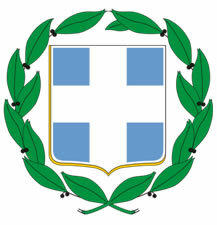Situated at the southern tip of the Balkans in southeastern Europe, Greece encompasses the mountainous Peloponnese peninsula and about two thousand islands in the Aegean and Ionian seas. It borders to the north with Bulgaria, and with Albania; to the east with Turkey; to the south with the Mediterranean Sea and to the west with the Ionian Sea.
The country is considered the cradle of Western civilization, philosophy, literature, dramaturgy and the modern idea of democracy. Greece has more ancient monuments than any other European nation. Among them, several are heritages of humanity, such as the Archaeological Site of Olympia, where the games were born Olympians, the Oracle at Delphi, place of worship of the God Apollo, and the Acropolis, located in the heart of the capital, Athens.
The Greek historical wealth, together with its natural beauty with beaches with mild climate and waters bright, attracts millions of visitors, which makes tourism one of the main economic activities of the parents. In the mountains with poor, rocky soil, grape and olive plantations predominate, of which Greece is one of the world's largest exporters.
Do not stop now... There's more after the advertising ;)

Coat of Arms of Greece
Data from Greece:
Territorial extension: 131,990 km².
Location: Europe.
Capital: Athens.
Climate: Mediterranean.
Government: Parliamentary Republic.
Administrative division: 13 regions.
Language: Greek.
Religion: Christianity 94.7% (93% Orthodox, another 1.7%), another 3.4%, no religion and atheism 1.9%.
Population: 11,161,335 inhabitants. (Men: 5,533,114; Women: 5,628,221).
Ethnic Composition: 98% Greeks, another 2%.
Demographic density: 84.5 inhab/km².
Average annual population growth rate: 0.23%.
Population residing in urban areas: 61.17%.
Population residing in rural areas: 38.83%.
Undernourished population: 3%.
Life expectancy at birth: 79.1 years.
Households with access to drinking water: 100%.
Households with access to a health network: 98%.
Human Development Index (HDI): 0.855 (very high).
Euro currency.
Gross Domestic Product (GDP): US$313,355 million.
GDP per capita: 28,111 of US$.
External relations: World Bank, IMF, OECD, WTO, UN, NATO, EU.
By Wagner de Cerqueira and Francisco
Graduated in Geography
Would you like to reference this text in a school or academic work? Look:
FRANCISCO, Wagner de Cerqueira and. "Greece"; Brazil School. Available in: https://brasilescola.uol.com.br/geografia/grecia.htm. Accessed on June 28, 2021.
